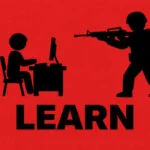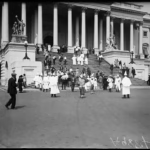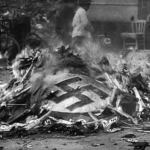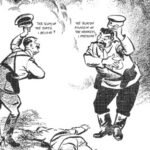On December 7, 1941, the Empire of Japan attacked the U.S. Naval base at Pearl Harbor, Hawaii. President Franklin D. Roosevelt described the attack on Pearl Harbor as “a date which will live in infamy.” At the time, it seemed impossible that anyone could forget the events of that day. It was the turning point that drew the United States into World War II, a global conflict that reshaped the modern world.
And yet, 83 years later, how many people could tell you what happened on that date? How many remember it at all? How many understand its importance to the war or the significance of the Second World War to our lives today? Like so many other moments in history, the memory of Pearl Harbor has faded, not from malice or neglect, but because time erodes even the most significant events until they are forotten. This is inevitable.
The Paradox of the Gettysburg Address
Almost 80 years before Pearl Harbor, President Abraham Lincoln delivered the Gettysburg Address. In just over two minutes, Lincoln proclaimed, “The world will little note, nor long remember what we say here, but it can never forget what they did here.” Yet the opposite has proven true.
The Gettysburg Address is memorized, quoted, and revered. The battle itself? Fewer people could tell you its details. Why was it fought? What were its stakes? What were the consequences? For many, the Civil War in general has become little more than a shadow, its complexity erased in favor of simplified narratives.
Lincoln’s humility, though admirable, highlights a broader truth: it’s easier to remember a few words than to grapple with the reality of war, politics, and human suffering. Over time, the meaning of those words can also become disconnected from the events they were meant to commemorate.
Rewriting and Misremembering History
The Civil War was fought over slavery, yet there are still those who try to rewrite this fact. World War II is remembered as a triumph of good over evil, but how often are its aftermath and complexities—like the abandonment of Eastern Europe to Soviet control—discussed?
Popular media adds to the problem. Films like Saving Private Ryan brilliantly capture individual experiences, but their narrow focus risks leaving viewers with an incomplete understanding of the broader context. There’s nothing wrong with selective storytelling, but the responsibility lies with us to step back and learn more.
Too often, people look to history for validation rather than understanding. They cherry-pick events to support their worldview, using the past as a prop instead of a tool for growth.
The Wisdom of Ozymandias
Percy Shelley captured this reality brilliantly long before Pearl Harbor or Gettysburg. In his poem, Ozymandias, a traveler recounts the ruins of a once-mighty monument, now surrounded by endless desert. Its inscription reads, “Look on my Works, ye Mighty, and despair!” Yet nothing remains but decay and silence. Ozymandias was trying to boast about his greatness and power, but as his monument decays, it tells a very different story. You too will be forgotten.
Even Shelley himself has largely faded into obscurity, overshadowed by his wife, Mary Shelley. And even her famous creation, Frankenstein, is often misremembered. The creature is mistaken for its creator, and the story is warped into clichés that miss its deeper messages.
Someday, all of this—Pearl Harbor, the Civil War, World War II—will fade. Even the monuments we build and the stories we tell will erode. This is the nature of time.
Why Grappling with History Still Matters
If nothing lasts, why bother with history? Because history isn’t just a record of what happened, it’s a guide to who we are. When we study the past, we learn about human behavior, choices, and consequences. We see patterns, mistakes, and possibilities for the future.
Forgetting or misremembering history doesn’t just erase the past; it blinds us to the lessons we need in the present. Using history as a prop for comfort or political agendas distorts its value. But when we engage with it honestly, history offers us insight and humility.
A Call to Reflection
You don’t need to be a historian or care deeply about every era, event, or figure in history. But when you believe something is important, take the time to understand it. Don’t use the past to push predetermined conclusions.
And when days like Pearl Harbor come around, take a little time to look back on them. There are so many great stories to be rediscovered, even beyond the insights you might gain.
Recommended reading: Conservatism













Leave a Reply